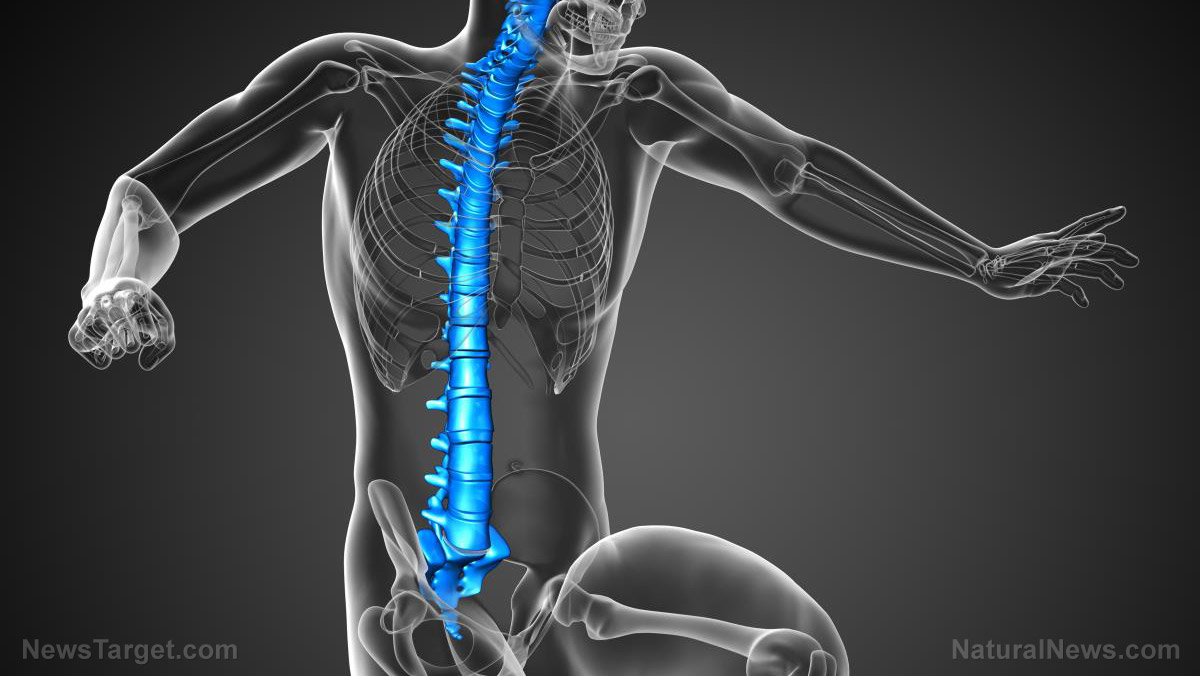Do you have enough calcium? Too much or too little can leave you vulnerable to disease
09/17/2019 / By Evangelyn Rodriguez

Calcium is a mineral that’s needed by the body for many things. Not only is it important for maintaining strong bones and teeth, but calcium is also required by other body parts to properly execute their functions. However, despite the many roles it plays, the amount of calcium the body needs is strictly regulated. Having too much or too little calcium disrupts the body’s equilibrium and leads to serious health problems. In a recent article published in the journal Food Science and Human Wellness, researchers reviewed the key mechanisms of calcium homeostasis, which includes calcium regulation, absorption, reabsorption in the kidneys, and bone calcium resorption. They also discussed the roles of dietary calcium and vitamin D in diseases associated with impaired calcium regulation.
How is calcium used inside the body?
Calcium is the most abundant element found in the human body. It is said that approximately one kilogram of calcium is contained by an individual, the majority of which — more than 99 percent — is located inside the bones in the form of calcium phosphate. The small amount of calcium not deposited in the bones is used by various tissues and affects several physiological functions by interacting with various proteins. Some of calcium’s most important roles include:
- Enabling muscle movement
- Carrying messages from the brain to other body parts
- Nerve signaling/communication
- Helping blood circulate through blood vessels
- Releasing and activating hormones and enzymes
- Helping cells differentiate
- Enabling immune response
- Aiding in programmed cell death (apoptosis)
According to studies, these functions are maintained via the tight regulation of calcium concentration in extracellular fluid and cell compartments. The primary regulator of calcium concentration in extracellular fluid is known as the calcium sensing receptor. This receptor is located in the parathyroid gland and is responsible for mediating the absorption of calcium in the intestines, reabsorption in the kidneys, and bone resorption or formation. When any of these processes becomes dysregulated, the body develops calcium-related diseases such as osteomalacia and osteoporosis.
The consequence of too much calcium
Due to strict regulation, the amount of calcium in the blood should not exceed the optimal concentration of 1.30 millimoles per liter. Elevated blood calcium levels result in hypercalcemia, a life-threatening condition that affects various organs. Common causes of hypercalcemia include an overactive parathyroid gland, the use of certain medications, an underlying health condition, or too much vitamin D. Vitamin D helps the body absorb calcium from food.
Hypercalcemia can also be caused by certain cancers. For instance, bone-related cancers like multiple myeloma or leukemia erode the bone, causing calcium to leak into the blood. Some cancers can also produce a protein similar to the parathyroid hormone, which induces bones to release calcium. Other cancers have the ability to affect kidney function and how the organ removes excess calcium in the blood.
Hypercalcemia can weaken the bones, cause kidney stones, and impair brain and heart function. (Related: Excess Calcium Intake Can Raise Your Risk of Cardiovascular Disease.)
The negative effects of calcium deficiency
The average daily recommended amount of calcium for adults varies depending on age. In general, for those aged 19-50, calcium intake should be about 1,000 milligrams (mg) per day, while adults aged 51-70 are required to get at least 1,200 mg from their diet. Teenagers and pregnant or breastfeeding women, on the other hand, require more calcium and are advised to get 1,300 mg daily.
Daily recommended amounts are set because calcium deficiency or hypocalcemia has serious consequences. Insufficient intake of calcium can lead to memory loss, muscle spasms, depression, hallucinations, muscle cramps, and fracturing of the bones. Osteomalacia — the softening of the bones — and osteoporosis are also caused by hypocalcemia and are particularly prevalent among older adults.
While many factors, including hormonal changes (especially in women) and genetics, contribute to hypocalcemia, vitamin D deficiency, pancreatitis, septic shock, renal failure, chemotherapeutic drugs, and malnutrition are the primary causes of calcium deficiency.
To prevent hypocalcemia, getting enough calcium from diet and supplements is important.
Sources include:
Tagged Under: bone fracture, bone health, bone-related cancers, Bones, brain function, calcium, calcium deficiency, calcium homeostasis, depression, dietary calcium, heart function, hypercalcemia, hypocalcemia, kidney function, leukemia, memory loss, multiple myeloma, muscle spasms, muscles, nutrients, osteomalacia, osteoporosis, parathyroid, research, science, supplements, vitamin D
RECENT NEWS & ARTICLES
COPYRIGHT © 2017 RESEARCH NEWS



















